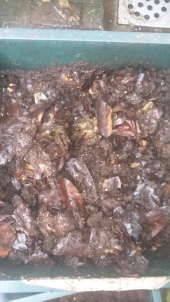
 3
3




I want to be 15 again …so I can ruin my life differently.
 1
1




Permaculture...picking the lock back to Eden since 1978.
Pics of my Forest Garden
 1
1




I want to be 15 again …so I can ruin my life differently.







 2
2




 3
3




“All good things are wild, and free.” Henry David Thoreau




I want to be 15 again …so I can ruin my life differently.
 2
2




I don't own the plants, they own me.
 3
3




“It’s said war—war never changes. Men do, through the roads they walk. And this road—has reached its end.”
 3
3




Invasive plants are Earth's way of insisting we notice her medicines. Stephen Herrod Buhner
Everyone learns what works by learning what doesn't work. Stephen Herrod Buhner
 1
1




I want to be 15 again …so I can ruin my life differently.







 3
3




 1
1




Invasive plants are Earth's way of insisting we notice her medicines. Stephen Herrod Buhner
Everyone learns what works by learning what doesn't work. Stephen Herrod Buhner
 1
1




 3
3




 1
1









Jen Swanson wrote:Aww darn. Pick them off and squish them, or mash them under your foot. They won't bother for long with that treatment!
“It’s said war—war never changes. Men do, through the roads they walk. And this road—has reached its end.”

| I agree. Here's the link: http://stoves2.com |



